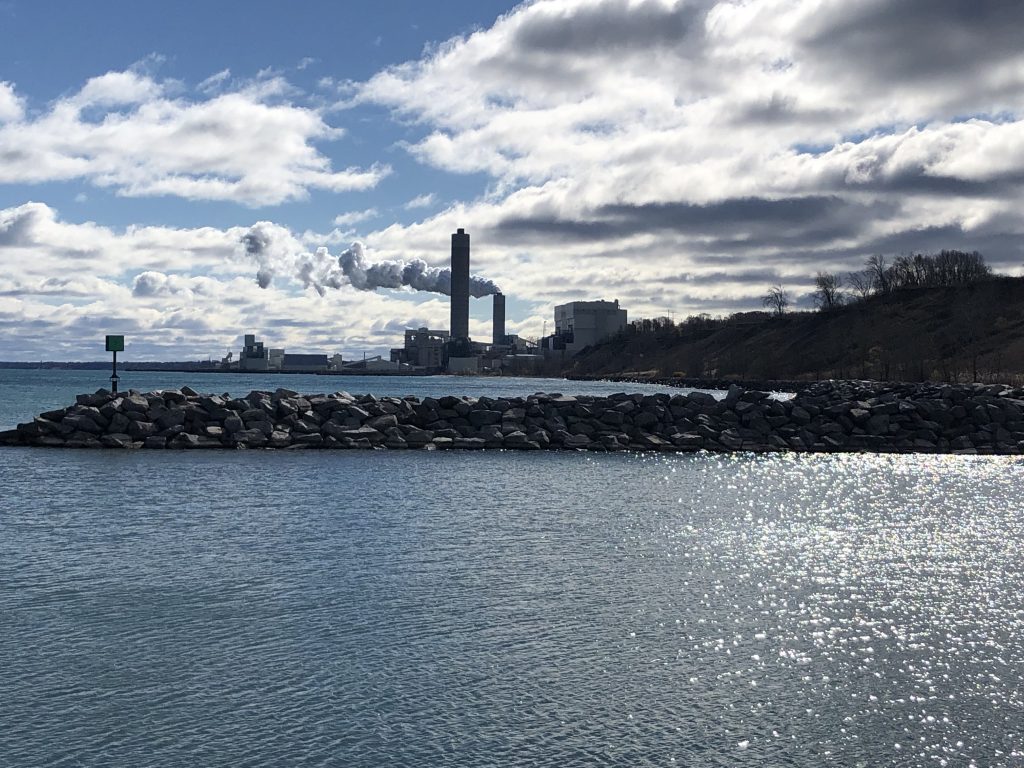Get a daily summary of the top news stories about Urban Milwaukee

Oak Creek Power Station. Photo taken November 13, 2021 by Dave Reid.
Recently, We Energies announced plans to build two massive new natural gas plants, which could cost taxpayers billions of dollars. This move represents a significant rollback of clean energy commitments and raises concerns about Wisconsin’s ability to provide more affordable energy sources in the future.
The problem stems from a major gap in Wisconsin’s regulatory process: the absence of integrated resource planning (IRP) within the Public Service Commission (PSC). Without this crucial tool to evaluate the merits of new energy projects relative to the state’s overall energy needs and sustainability goals, Wisconsin risks making short-sighted decisions with costly long-term consequences.
We Energies justifies its plans based on several factors, including new capacity requirements from regional grid operator MISO, recent EPA air rules, and increased demand in southeastern Wisconsin, particularly driven by a Microsoft data center project. However, these reasons do not align with the broader clean energy aspirations set forth by the state and nation.
The planned natural gas plants stand in stark contrast to We Energies’ stated commitments to reduce carbon emissions. Despite pledging an 80% reduction in carbon emissions by 2030 and aiming for carbon neutrality by 2050, the company’s actions tell a different story. The proposed plants, with an operational lifespan of more than 30 years, would significantly hamper progress toward achieving these ambitious goals. In addition, natural gas plants emit methane, a potent greenhouse gas more than 80 times more potent than carbon dioxide.
Microsoft is already transitioning to 100% renewable energy, including agreements that cover all fossil fuel-emitting electricity consumed by its data centers. The company is also exploring opportunities to make its backup power banks available to transmission grid operators to help meet electricity demand.
Additionally, massive battery energy storage systems are being deployed across the country, including in Alaska, to replace natural gas plants and address peak demand while reducing costs. The price of natural gas can swing rapidly, increasing the financial burden on ratepayers and hindering the state’s progress toward more affordable and sustainable energy. Wisconsin’s electric rates are already among the top 15 states nationally and above the Midwest average.
Get a daily digest of Milwaukee stories
Additionally, the health consequences of continued reliance on natural gas cannot be overlooked. Methane emissions associated with natural gas extraction and combustion pose significant health risks and air pollution-related illnesses among Wisconsin residents. Natural gas flaring, combined with other air pollutants, worsens noncompliance with ozone pollution standards, which can inhibit business and industry expansion.
With a 100% Clean Energy Standard, Wisconsin can accelerate and expand utility-scale low-cost solar, wind, advanced battery storage, microgrids and community solar projects, plus smart grid technology upgrades for the transmission network. The United States Department of Energy (DOE) has identified offshore wind energy as another technology to consider, where floating wind turbines in the Great Lakes can tap into the transmission and distribution networks of existing power plants, saving money for consumers. taxpayers.
Additionally, taking advantage of federal tax credits from the new Inflation Reduction Act (IRA), home energy efficiency rebates, weatherization, and other incentives will reduce energy demand and help spur clean energy technology manufacturing and workforce development in the region.
The potential health consequences, increasing financial burden, and economic impacts on green job growth underscore the urgent need to transition to cleaner, renewable energy sources. This is why many groups across the state, including the Clean Economy Coalition of Wisconsin (CECW), a coalition of climate, energy, environmental justice, and conservation organizations, businesses, and allies, oppose new fossil fuel plants and support a more holistic planning process that aligns with the state’s clean energy goals and the growth of Wisconsin’s clean energy economy.
It is time to prioritize the long-term well-being of our communities and environment over short-term profits. Together, let us urge policymakers to embrace a clean energy future for Wisconsin, one that benefits everyone, now and for generations to come.
Juan Imes is co-founder and director of the Wisconsin Environmental Initiative.


